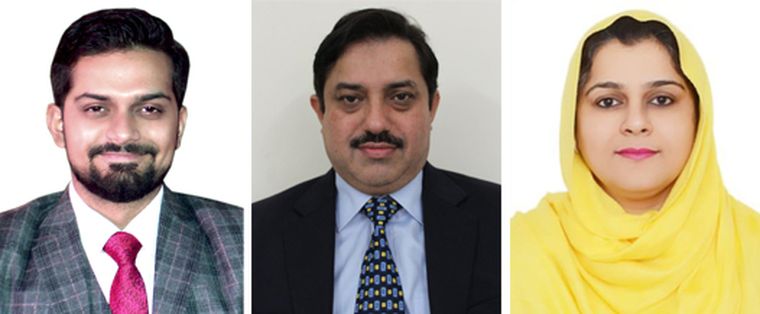Early studies about Covid-19 said that deaths were preceded by a rapid deterioration in the condition of patients. Therefore, the patients had to be monitored constantly. But, during a health crisis that is easier said than done.
At Era's Lucknow Medical College and Hospital, the founder and his family stepped in to help their team. Mohsin Ali Khan, his wife, Saiyada, and their son Zaw volunteered to monitor the condition of patients themselves. They had technology to aid them—in 2019, Era had developed a dashboard to monitor all admitted patients from a central control room. The family put up a display of it in their living room and maintained a 24-hour vigil, taking turns to watch the screen.
“Generally, hospitalised patients have family or friends with them,” said Zaw, 29, additional director (administration, research and development). “Covid-19 patients around the world were deprived of that personal care. We were attempting to fill that gap to some extent.” He said that alerting staff to any issue, such as oxygen saturation of a patient dropping, was important because it was not possible for the doctors in an ICU to constantly comprehend the condition of all patients.
Also read
- Five years after Covid-19: ICMR scientist Dr Pragya Yadav recalls pandemic days, the fightback, and making of Covaxin
- India restarts random Covid tests for international passengers as 4 cases of Omicron BF.7 variant detected
- Tamil Nadu CM Stalin shifted to hospital for Covid-related symptoms
- Army surgeon on the frontline of Covid-19 battle dies
- Age of Heroes
- We should not speculate on herd immunity, focus on prevention: ICMR chief
Zaw, a bioinformatics engineer with a master's in business strategy, had been guiding his team in novel research on personalised nutrition. This proved useful in improving recovery rates. “We listed anti-inflammatory, anti-fibrosis, anti-thrombotic and anti-mucus-hypersecretion food like ginger and cinnamon,” he said. The team at Era identified a compound in green tea as a promising inhibitor of SAR-CoV-2’s spike protein. (Zaw warns that post-vaccination, green tea may inhibit the working of the vaccine, too.) “For children and the elderly, we baked snacks with the items in the check-list,” he said.
According to the hospital, only 0.2 per cent of patients “admitted in a timely manner” died (as on February 20). The recovery rate at the L3 (critical care) hospital was 94.2 per cent, the “highest in Uttar Pradesh”. Zaw said that ELMC&H was ready to share its diet plan and the underlying science, and help interested parties to setup remote monitoring control rooms. “They can contact us at zawali@erauniversity.in,” he said.
Mohsin, 56, said that he was glad the environment of research at the hospital helped save lives. “We hope to continue this,” he said. “In addition to new variants of the SARS-CoV-2 virus, we are studying cancer, neurodegenerative conditions and chronic non-communicable diseases, with promising results. By sharing knowledge with institutes around the world, we hope to enhance India’s position as a world leader in science, technology and education.”


